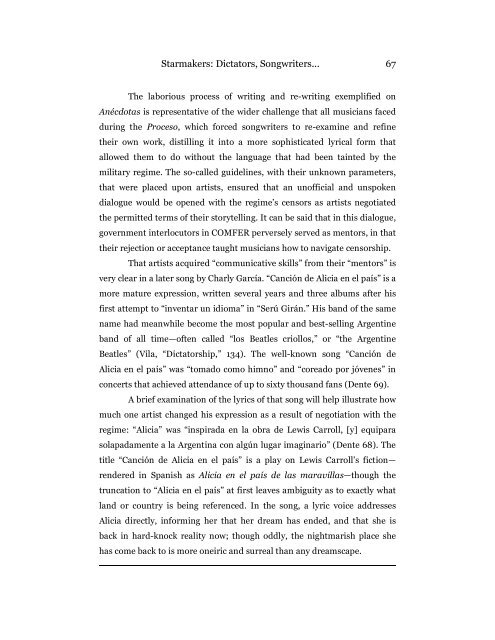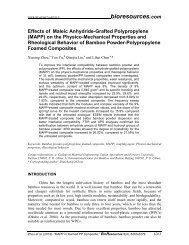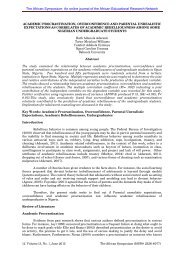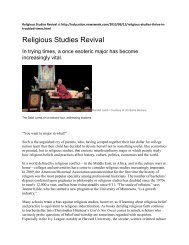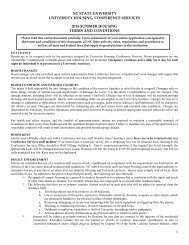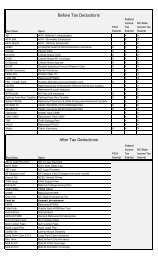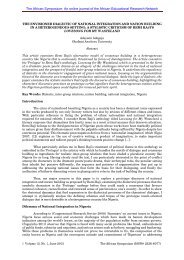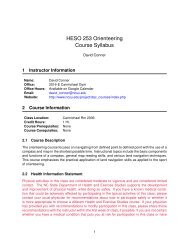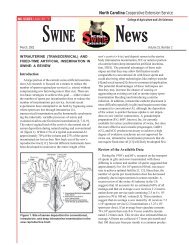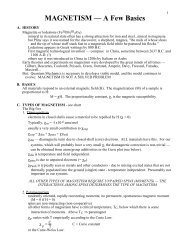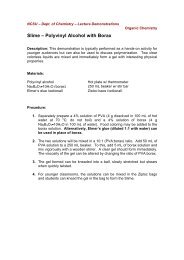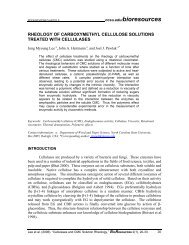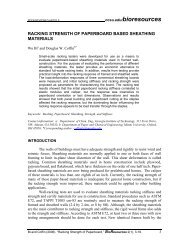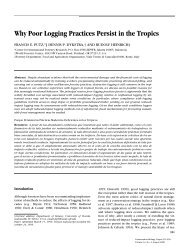Dictators, Songwriters, and the Negotiation of Censorship
Dictators, Songwriters, and the Negotiation of Censorship
Dictators, Songwriters, and the Negotiation of Censorship
Create successful ePaper yourself
Turn your PDF publications into a flip-book with our unique Google optimized e-Paper software.
Starmakers: <strong>Dictators</strong>, <strong>Songwriters</strong>...<br />
The laborious process <strong>of</strong> writing <strong>and</strong> re-writing exemplified on<br />
Anécdotas is representative <strong>of</strong> <strong>the</strong> wider challenge that all musicians faced<br />
during <strong>the</strong> Proceso, which forced songwriters to re-examine <strong>and</strong> refine<br />
<strong>the</strong>ir own work, distilling it into a more sophisticated lyrical form that<br />
allowed <strong>the</strong>m to do without <strong>the</strong> language that had been tainted by <strong>the</strong><br />
military regime. The so-called guidelines, with <strong>the</strong>ir unknown parameters,<br />
that were placed upon artists, ensured that an un<strong>of</strong>ficial <strong>and</strong> unspoken<br />
dialogue would be opened with <strong>the</strong> regime’s censors as artists negotiated<br />
<strong>the</strong> permitted terms <strong>of</strong> <strong>the</strong>ir storytelling. It can be said that in this dialogue,<br />
government interlocutors in COMFER perversely served as mentors, in that<br />
<strong>the</strong>ir rejection or acceptance taught musicians how to navigate censorship.<br />
That artists acquired “communicative skills” from <strong>the</strong>ir “mentors” is<br />
very clear in a later song by Charly García. “Canción de Alicia en el país” is a<br />
more mature expression, written several years <strong>and</strong> three albums after his<br />
first attempt to “inventar un idioma” in “Serú Girán.” His b<strong>and</strong> <strong>of</strong> <strong>the</strong> same<br />
name had meanwhile become <strong>the</strong> most popular <strong>and</strong> best-selling Argentine<br />
b<strong>and</strong> <strong>of</strong> all time—<strong>of</strong>ten called “los Beatles criollos,” or “<strong>the</strong> Argentine<br />
Beatles” (Vila, “<strong>Dictators</strong>hip,” 134). The well-known song “Canción de<br />
Alicia en el país” was “tomado como himno” <strong>and</strong> “coreado por jóvenes” in<br />
concerts that achieved attendance <strong>of</strong> up to sixty thous<strong>and</strong> fans (Dente 69).<br />
A brief examination <strong>of</strong> <strong>the</strong> lyrics <strong>of</strong> that song will help illustrate how<br />
much one artist changed his expression as a result <strong>of</strong> negotiation with <strong>the</strong><br />
regime: “Alicia” was “inspirada en la obra de Lewis Carroll, [y] equipara<br />
solapadamente a la Argentina con algún lugar imaginario” (Dente 68). The<br />
title “Canción de Alicia en el país” is a play on Lewis Carroll’s fiction—<br />
rendered in Spanish as Alicia en el país de las maravillas—though <strong>the</strong><br />
truncation to “Alicia en el país” at first leaves ambiguity as to exactly what<br />
l<strong>and</strong> or country is being referenced. In <strong>the</strong> song, a lyric voice addresses<br />
Alicia directly, informing her that her dream has ended, <strong>and</strong> that she is<br />
back in hard-knock reality now; though oddly, <strong>the</strong> nightmarish place she<br />
has come back to is more oneiric <strong>and</strong> surreal than any dreamscape.<br />
67


